If you are a business owner always looking for good employees, you will find a great ally in your quest to find talented prospects for your business by having a Referral Agreement.
Table of Contents
What Is a Referral Agreement?

A referral agreement is a document that legally obligates one party to refer clients or customers to another party. This agreement lays out the terms of the relationship between these parties, including what you’ll get in return for making referrals and what the other party will provide.
A referral agreement can be used in just about any business situation. For example, it can be used when someone is selling a business or product or when a company wants to give its customers incentives for referring new customers to them.
The most common way to use referral agreements is as part of your marketing strategy. You can use them to incentivize your current customers to recommend your services to others (or not) and reward those who do recommend your products with discounts or other perks.
Referral Agreement Templates
Expand your business network and foster fruitful collaborations with our comprehensive collection of Referral Agreement Templates. These free, printable templates provide a solid foundation for establishing clear and mutually beneficial referral agreements with other businesses or individuals. Whether you’re referring clients, leads, or opportunities, our templates offer customizable sections to outline referral fees, terms, and conditions, ensuring that all parties involved are aligned and incentivized. By using our Referral Agreement Templates, you can formalize referral partnerships, track referrals, and foster long-term business relationships. Maximize the power of referrals and tap into new growth opportunities. Download our templates now and establish strong referral agreements that drive business success.
Types of referral agreements
There are many types of referral agreements, and the one you choose will depend on your business and your needs. Here are some examples:
Direct Referral Agreement
When you refer someone directly to your client, it’s called a direct referral. Your client may pay you for your services, but there are no obligations on your part to provide them with referrals. A direct referral agreement indicates how much you’ll be paid in exchange for referring business to your client. For example, if you normally charge $100 per hour and they agree to pay $50 per hour, then you’ll get paid $25 per hour for each client referred directly to them. The more clients you refer directly like this, the more money you’ll make!
Tangible referral agreement
A tangible referral agreement is one where the terms are agreed upon before any actual contact takes place with potential customers and clients. In this type of agreement, there are no guarantees that any particular customer will actually buy anything and, therefore, no guarantee of compensation if they do buy something.
Community referral agreement
Businesses that want to build relationships with community leaders in their area use this type of agreement. These agreements help companies get better visibility in their local community and increase their chances of getting new clients.
Business referral agreement
This type of agreement is useful for businesses that want to partner with other companies for mutual benefit. If you need help with your marketing strategy or want to reach out to other businesses in your industry, this type of agreement can help you do just that.
Commission referral agreement
In this agreement, a person referred to as the referrer receives a commission if the referred client purchases products or services. The commission may be paid after the transaction is completed or immediately after the referral takes place. This type of agreement is common in insurance and financial planning industries, where referrals are often based on past experience and trust rather than on a formal contract.
Seven essential clauses to include in your referral agreement
In your referral agreement, you should include important clauses such as:
Nature of the Agreement
The nature of the agreement is an essential section that should be included in your referral agreement template. It states what kind of business relationship will be established between you and the referring party. For example, it can be either an exclusive or non-exclusive agreement, depending on what suits both parties best. If both parties wish to have an exclusive relationship with each other, then this should be clearly stated in this section, so there are no misunderstandings later on down the road.
Exclusivity
If you want your partner’s business to be exclusively available only from your company, then include this clause in your referral agreement template. However, if they want their business advertised by multiple companies, then make sure to specify this as well.
Duration
You might need only one referral agreement template, which will suffice for all your business needs. But this is not true because there are different types of agreements that you need to consider when creating each document. For example, if you want to use the same agreement for both individual and corporate clients, it may be difficult to determine which clauses apply to them.
Referral Fees
Referrals are essential not just for building your business but also for increasing your revenue. However, when entering into a referral agreement with another company or individual, there is always a chance that they might not fulfill their obligation under the contract – whether intentionally or unintentionally. If this happens, then how will you collect the referral fee? Your best bet is to include a clause in the contract stipulating how much money should be paid by either party if either party breaches the terms.
Referral Process
The first thing you need to specify is how the referral process works. This includes how long the customer has to make a referral, what happens if the referral does not fill out the form, and who will receive the formal invitation. You should also include whether or not you have any exclusions preventing you from accepting referrals from certain companies or individuals.
Intellectual Property
Intellectual property refers to ideas and processes that are protected by law through patents or copyrights. Suppose you are referring customers to other businesses. In that case, they may be able to use your intellectual property in their own business and profit from it, so it’s essential that you protect yourself with an agreement. The best way to do this is by ensuring that all parties involved agree not to use your intellectual property without permission and agree upon fair compensation if they do so inadvertently (i.e., accidentally).
Privacy and Confidentiality
Include a clause that states that both parties will keep their relationship private. For example, if you refer a customer to another business, they may ask you to explain what you do and how long you’ve been in business. You don’t want them to share this information with others as it could damage your reputation. The same goes for the business you are referring to — they may be asked how long they have been in operation and how many clients they have had over the years. If any of this information is shared publicly or online, it could harm both parties. A simple solution would be to ask them not to disclose any confidential information about each other’s businesses in public forums such as social media sites or blogs.
How do I create referral templates?
You can create a referral template in just a few minutes. There are a few ways to do this. You can:
The most important thing in a referral agreement template is to identify the entities involved in the agreement. This means the person who is referred, the person who referred them, and you as the person who receives referrals.
The second thing to consider is that you must have information about the referral qualifications. This will help you get a clearer idea about what kind of referrals you can expect from your referral partners.
Another thing to consider is whether there are any restrictions on your ability to use or refer others. If there are no such restrictions, it will be easier for you to use your referral partners’ referrals.
Also, you can put how much will be paid for a successful sale or if it is on commission. You can also include what type of payment method will be used, such as PayPal or check. If it is on commission, then you need to state the percentage of commission that will be given and how long it takes before they receive their payment.
This is another important component in the referral agreement template because it tells the person who referred a customer that they have a limited period of time within which they can refer someone else for them to receive their commission. This helps prevent people from spamming their friends with referrals when they do not actually have clients who would purchase their products or services or even see them as a reputable person or company that they could trust with their money.
FAQs
How do you structure a referral agreement?
A referral agreement typically contains sections addressing: the parties involved, definitions of key terms, referral services and fees, payment terms, intellectual property, non-circumvention, confidentiality, the term/termination conditions, and a signatures section.
What is a standard referral fee agreement?
A standard referral fee agreement clearly spells out the fees paid for successful referrals sent between two parties. It covers the referral services, commission percentage or flat fee amount, payment timeframes and methods, duration, and other formalities assuring proper compensation.
What are the terms of a referral agreement?
Common terms in a referral agreement include: exact referral services and qualifying actions, referral fees and calculations, payment procedures and schedules, reporting requirements, intellectual property ownership, non-solicitation/hiring conditions, confidentiality standards, agreement duration and termination policies.
What is referral service agreement?
A referral service agreement is a binding contract between two parties formalizing one party’s provision of client/customer referrals to the other party in exchange for an agreed referral fee or commission structure when referrals convert to successful business deals.

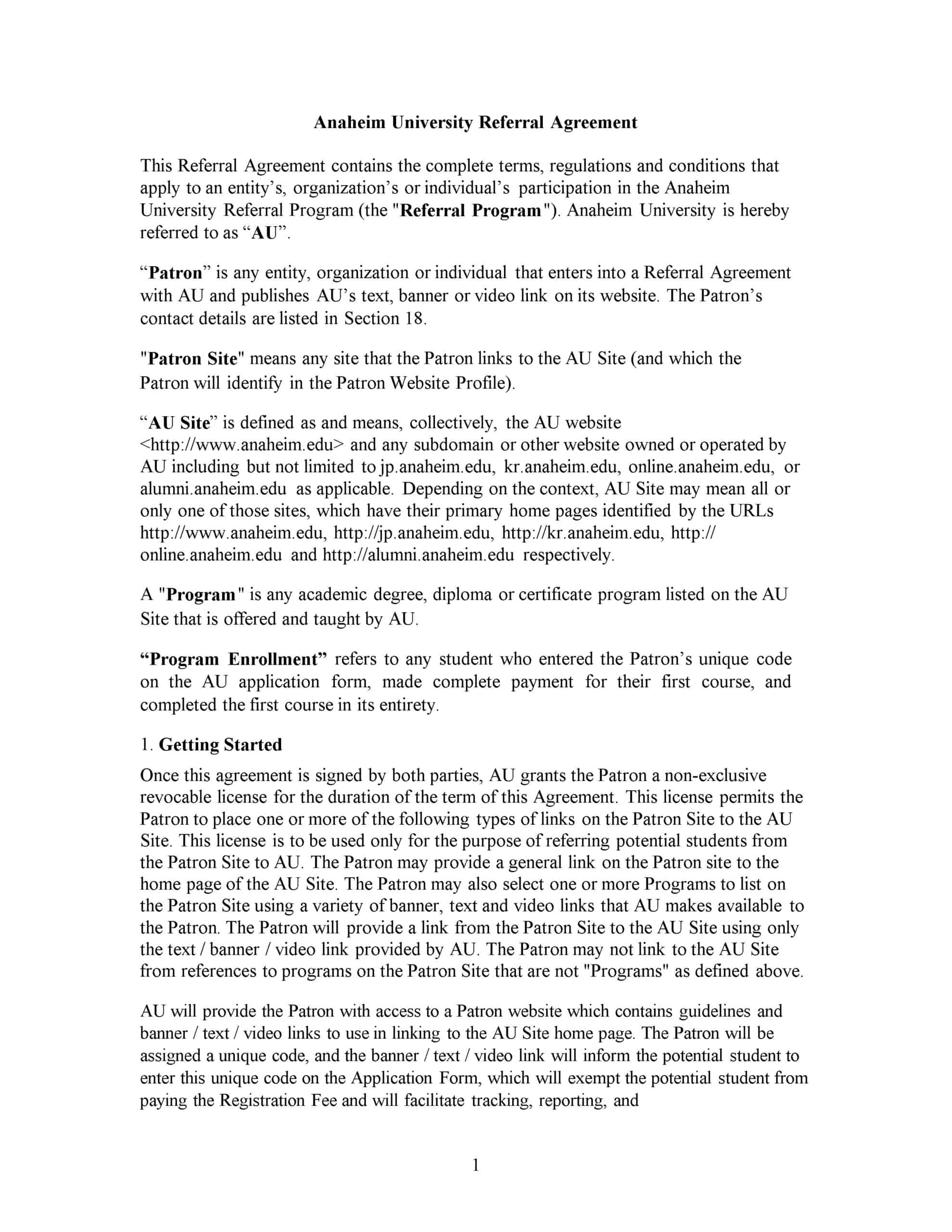









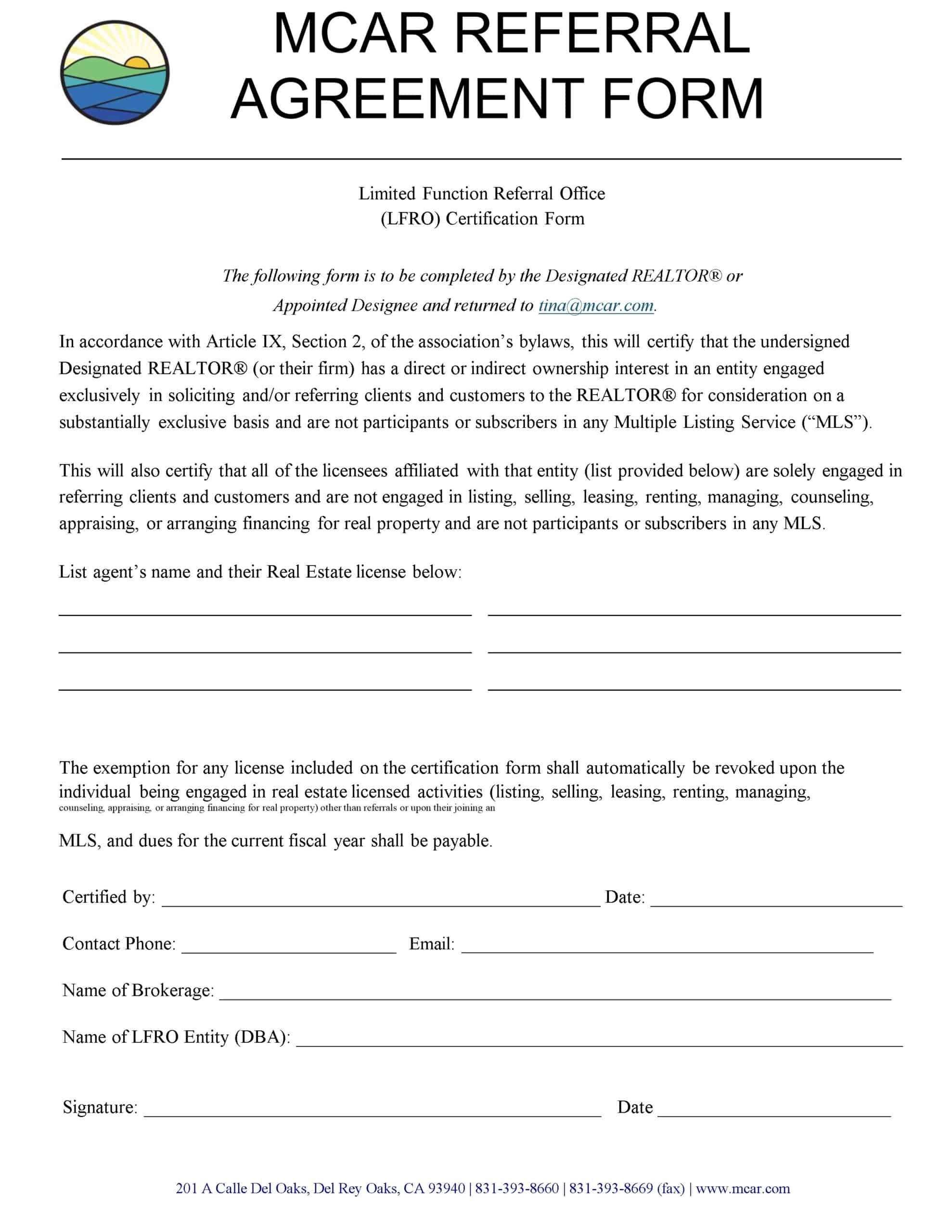

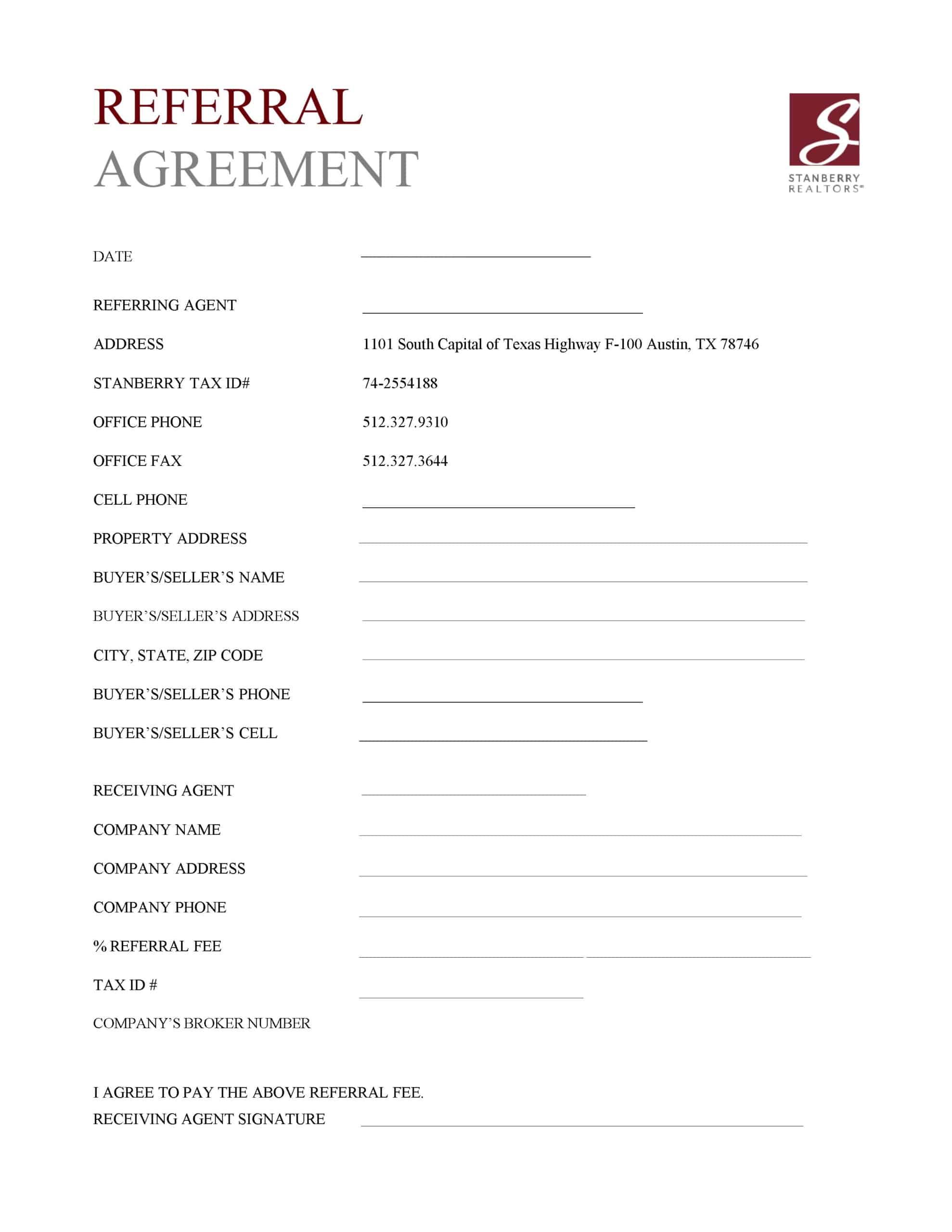
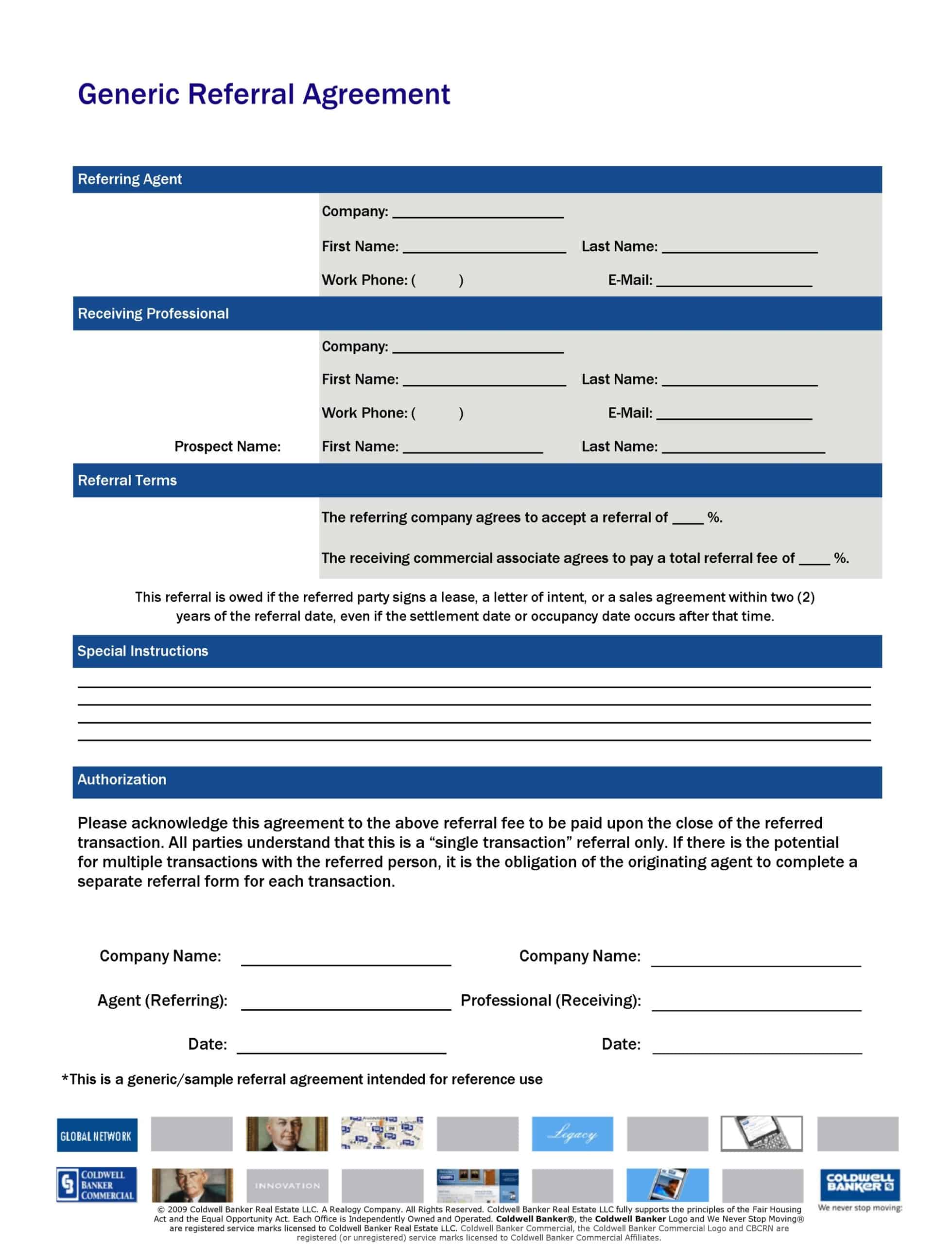


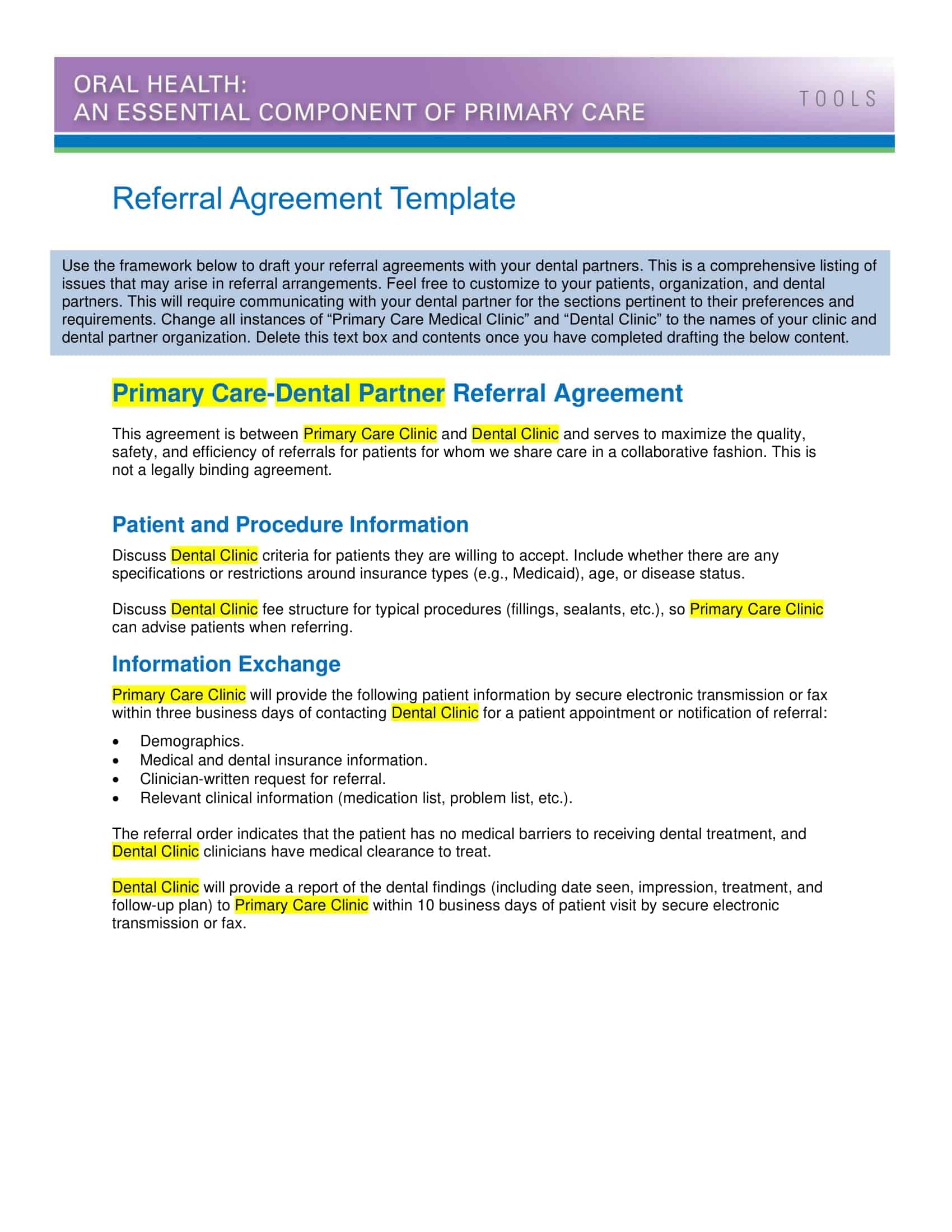
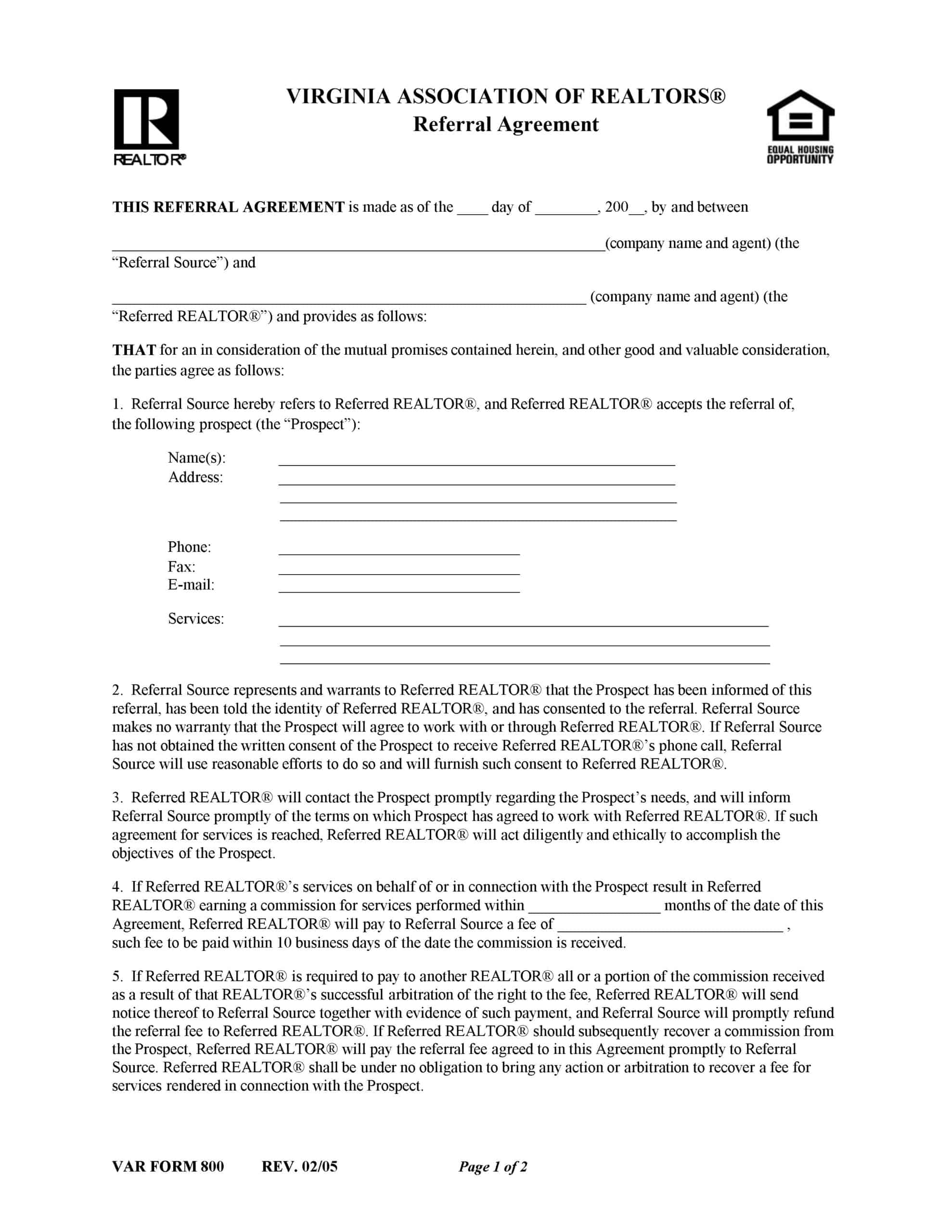
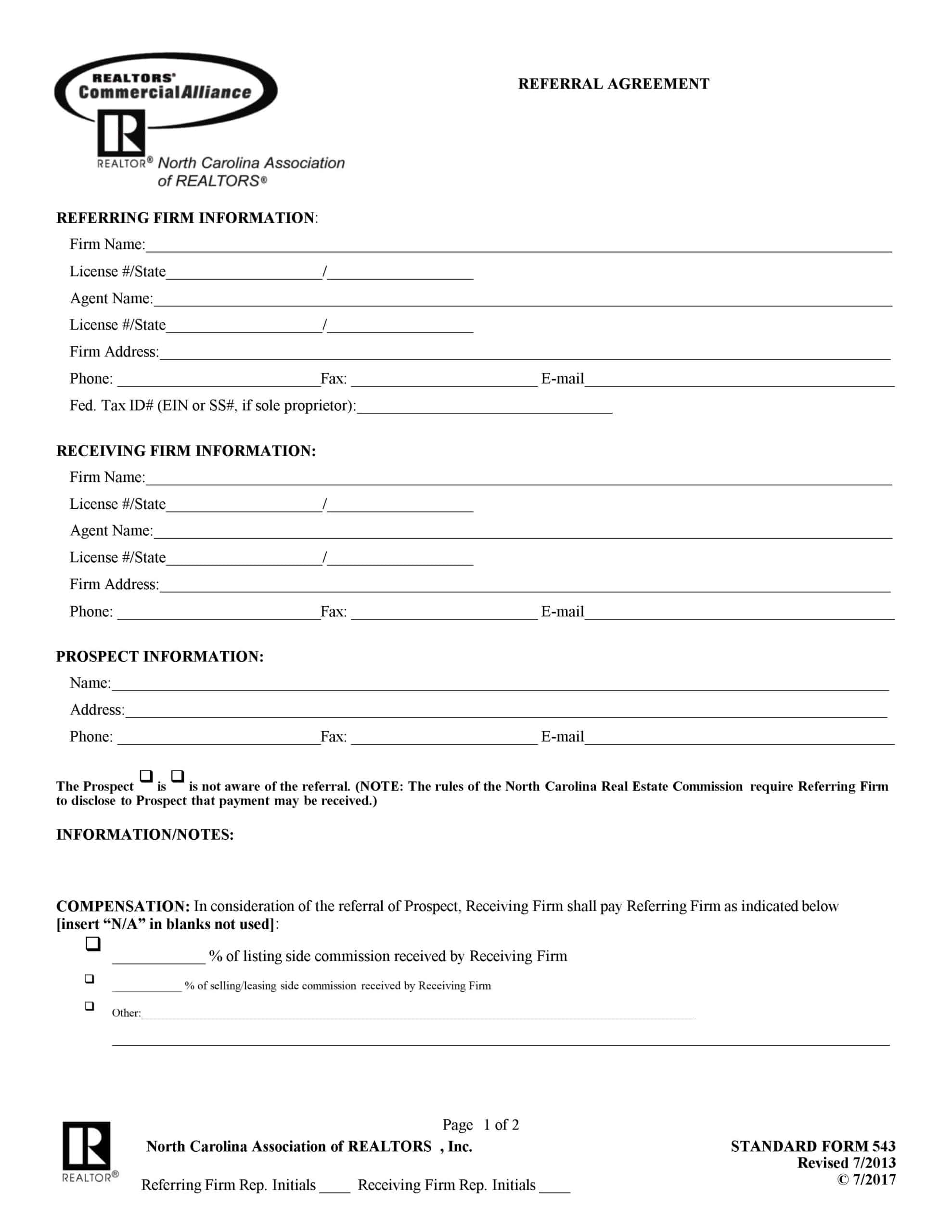








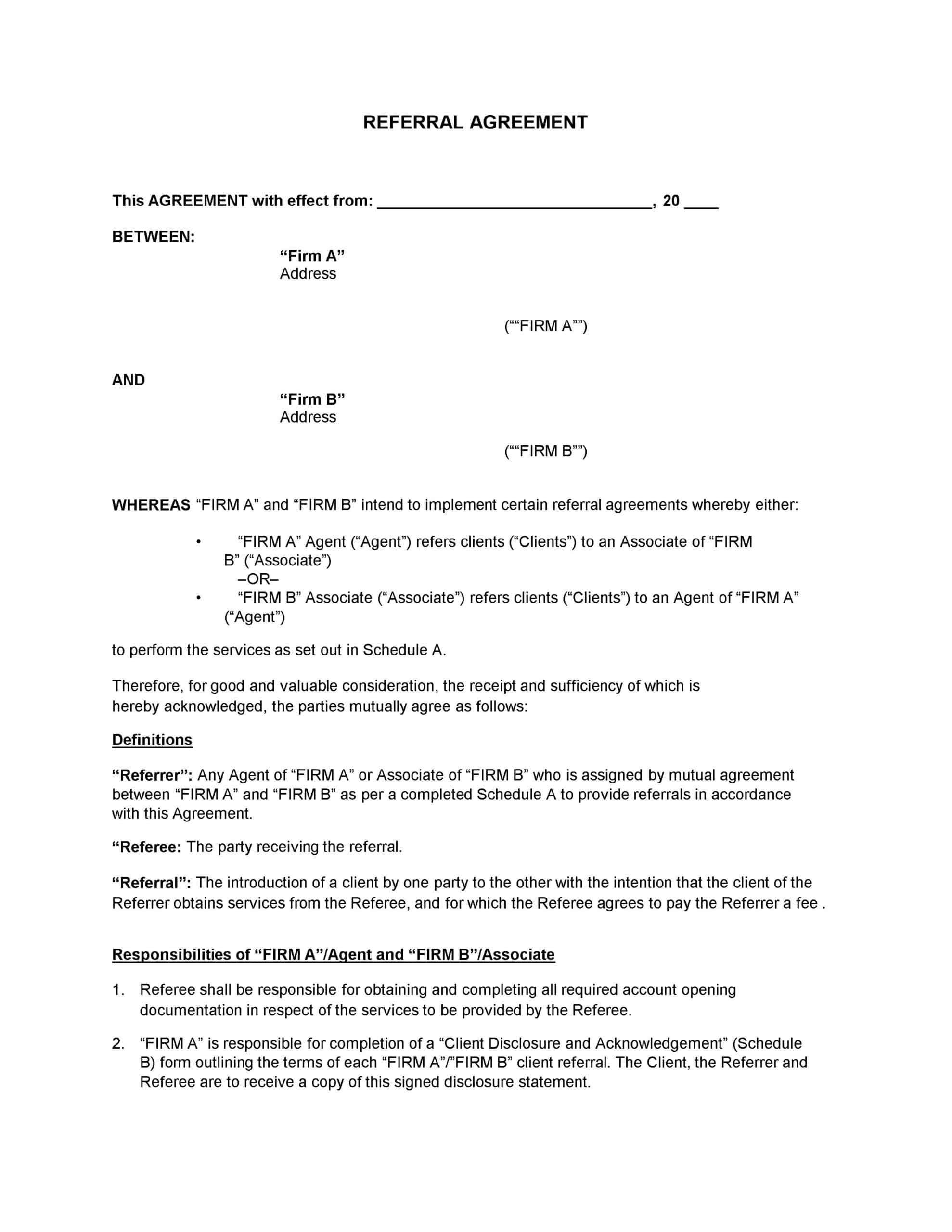

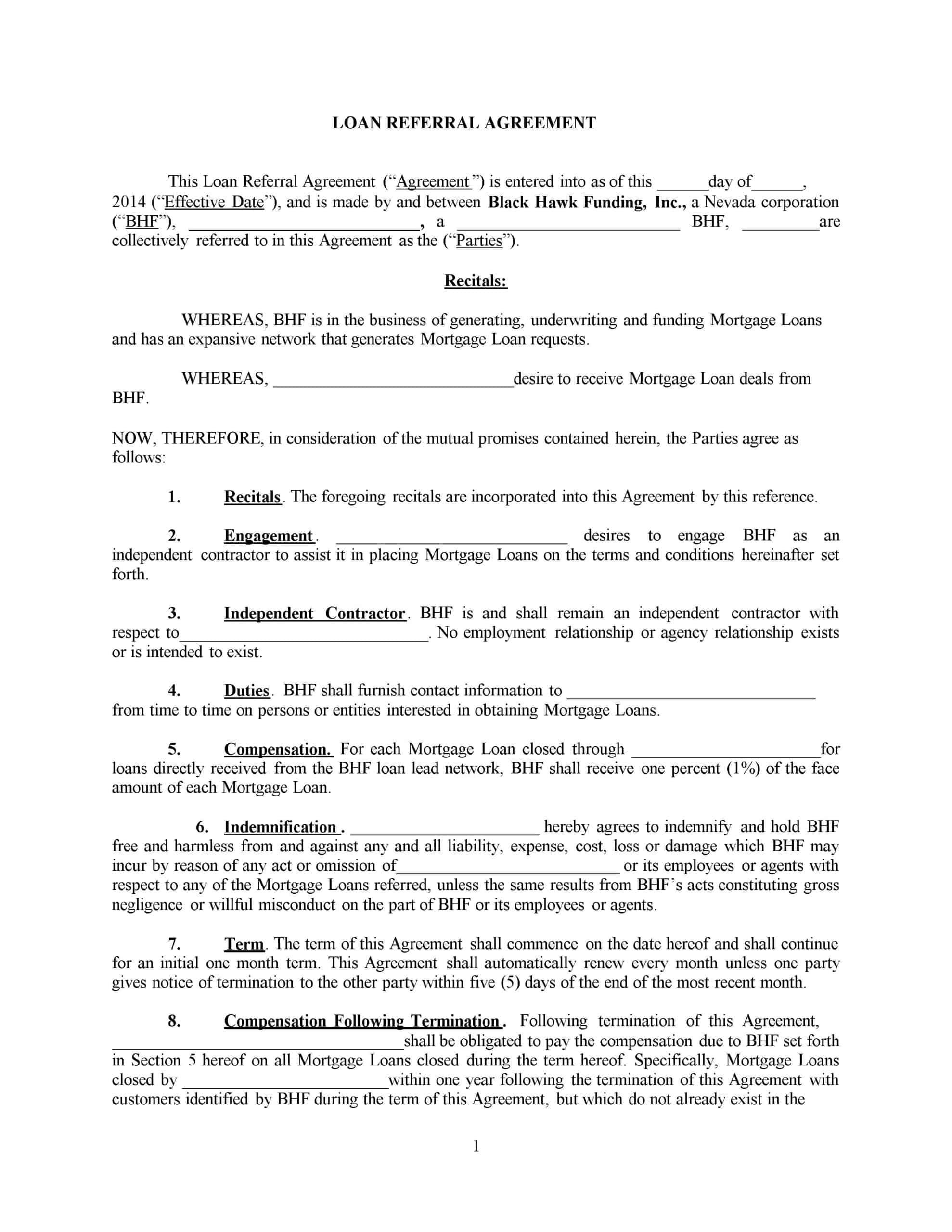
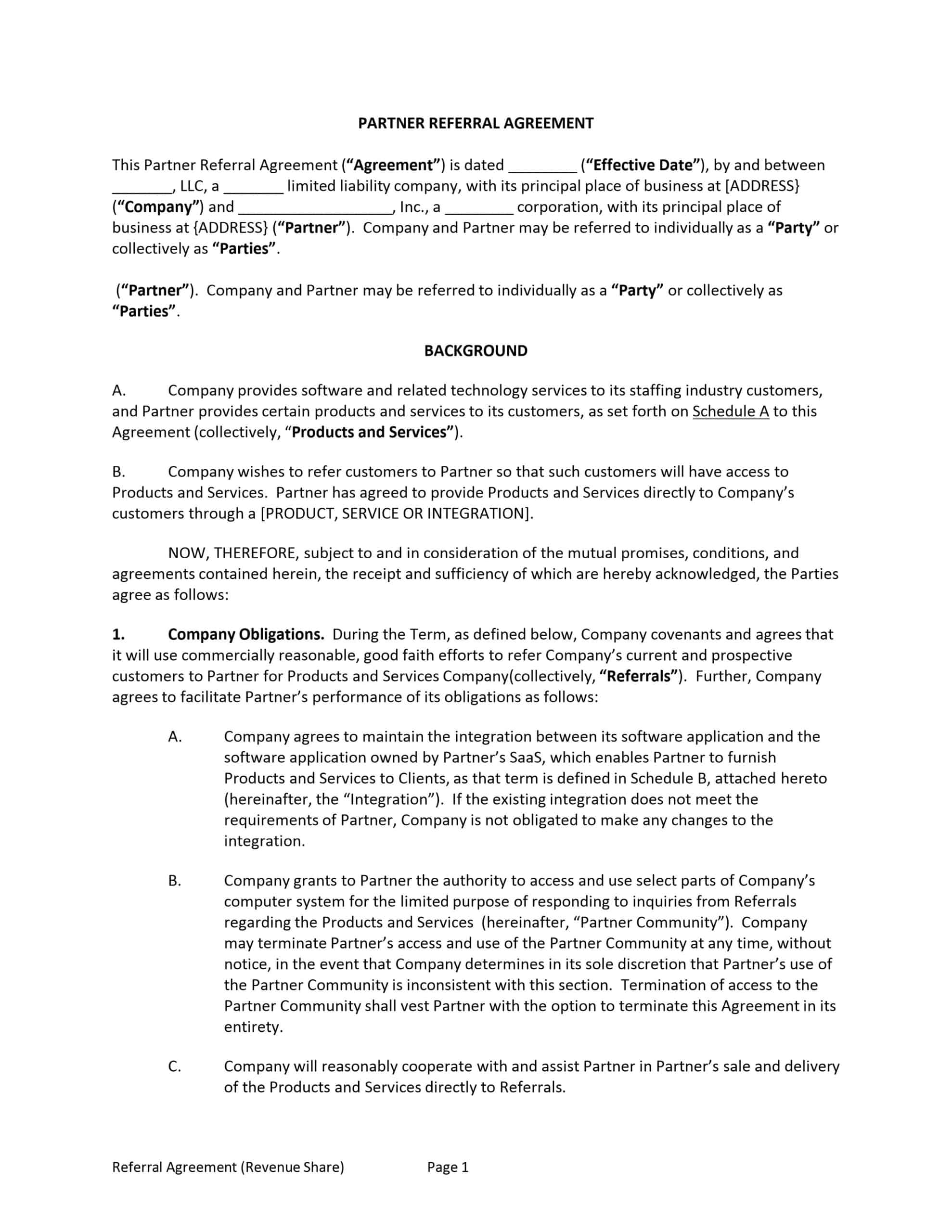








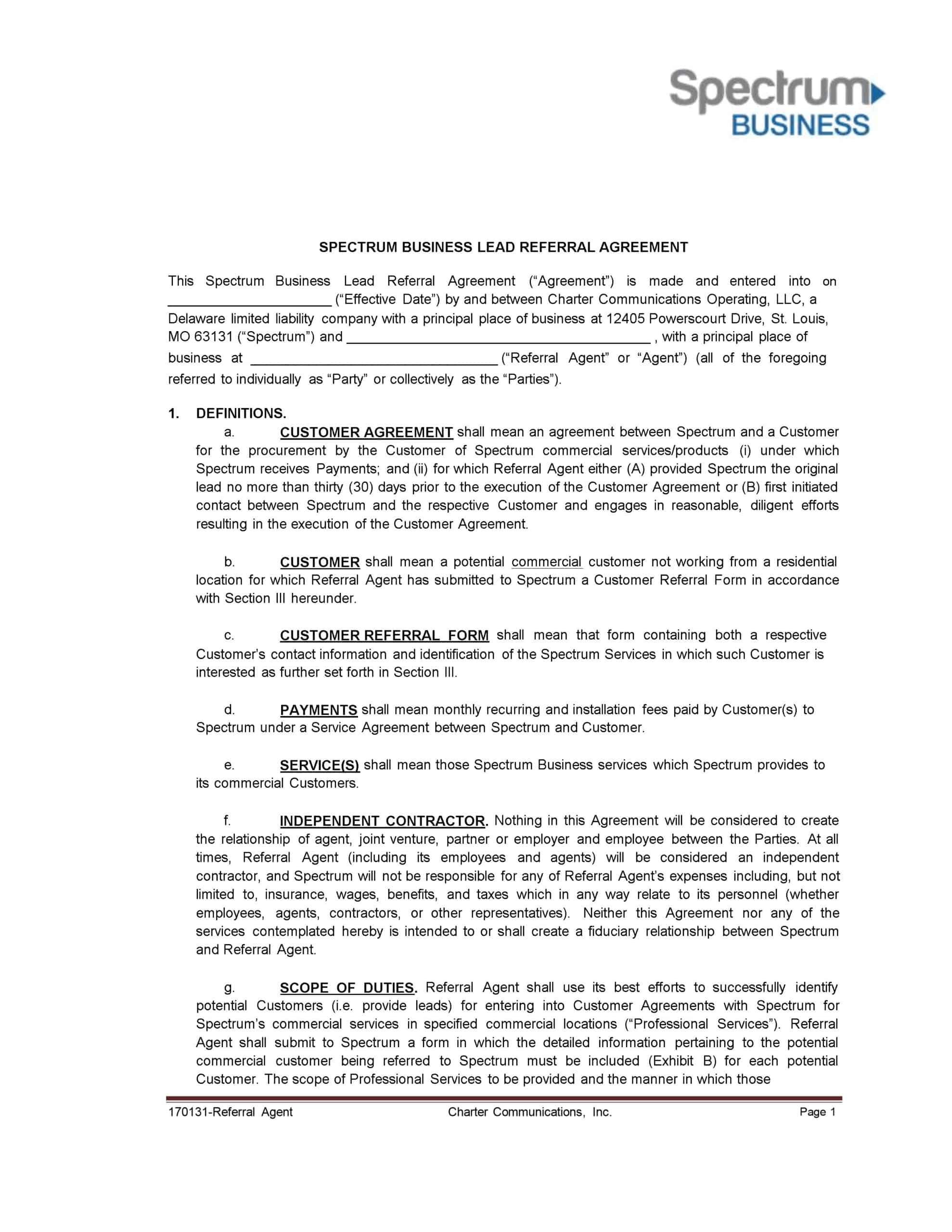
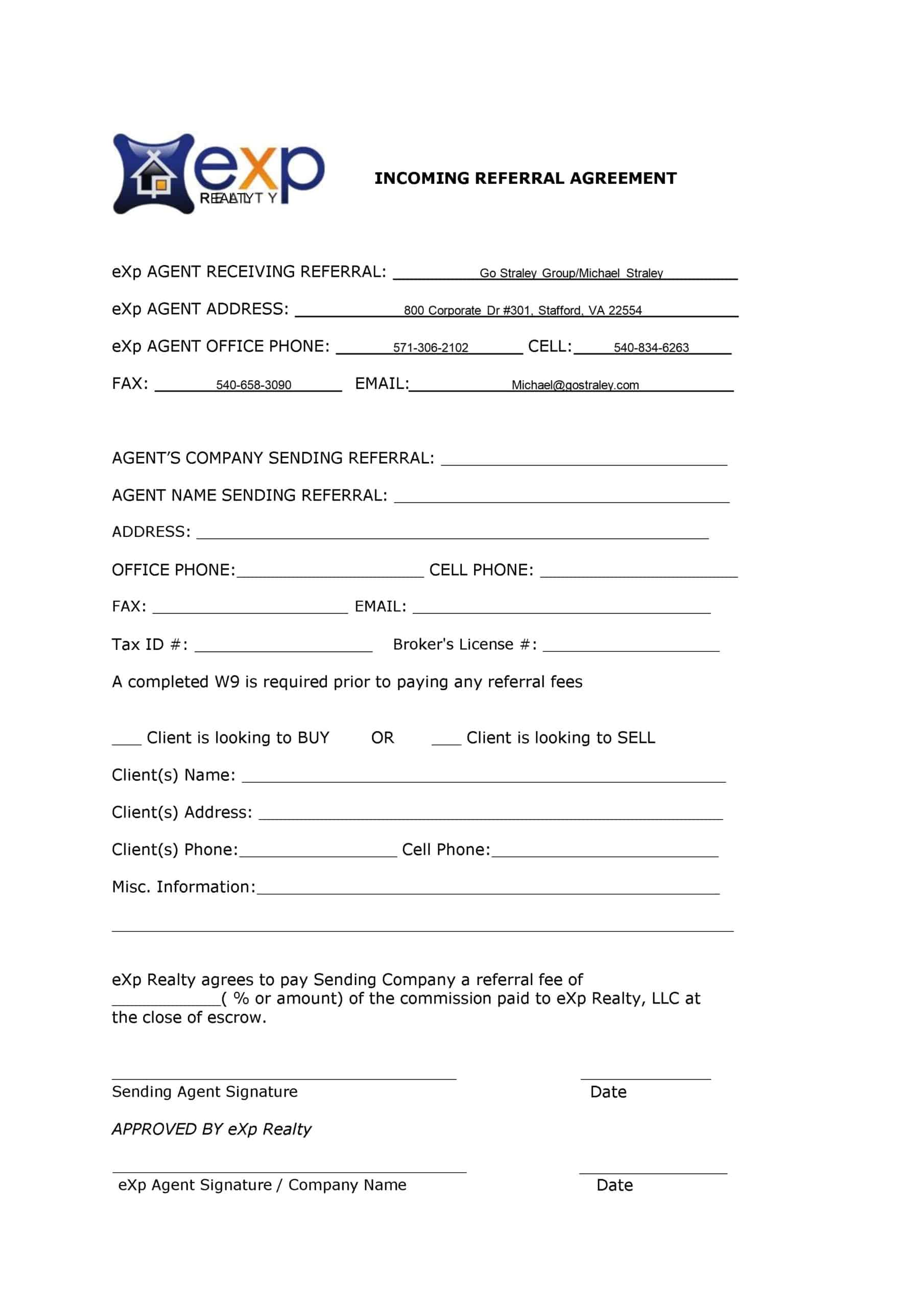




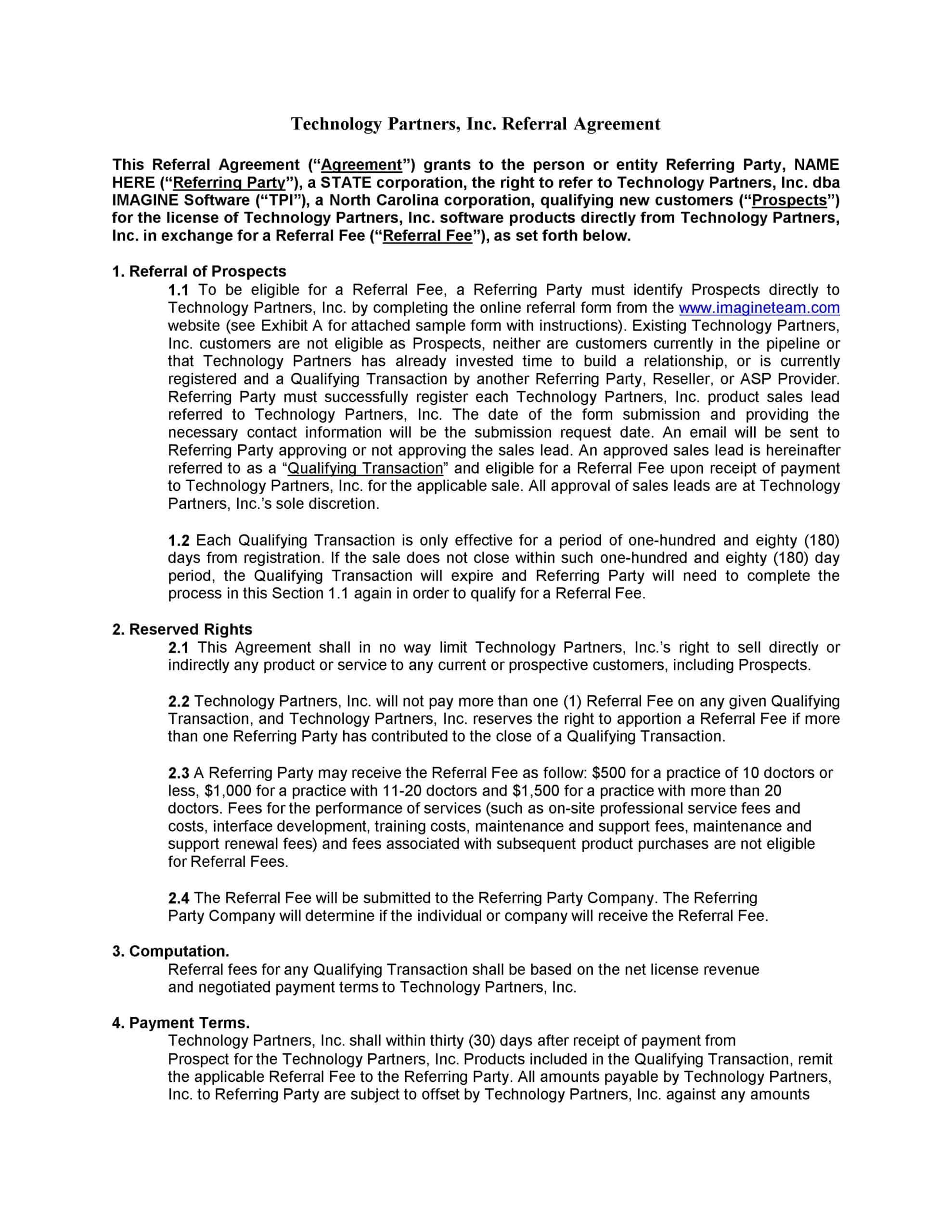
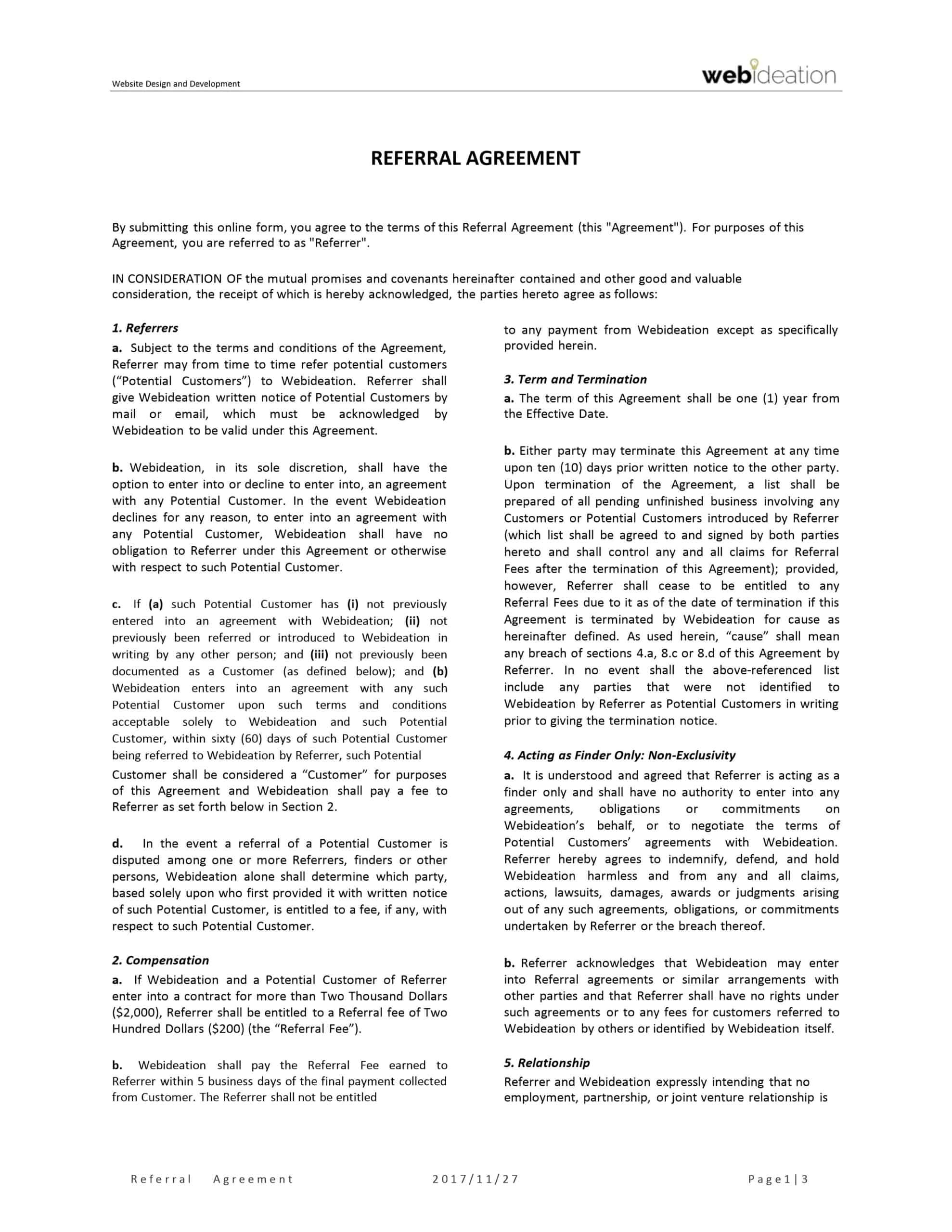
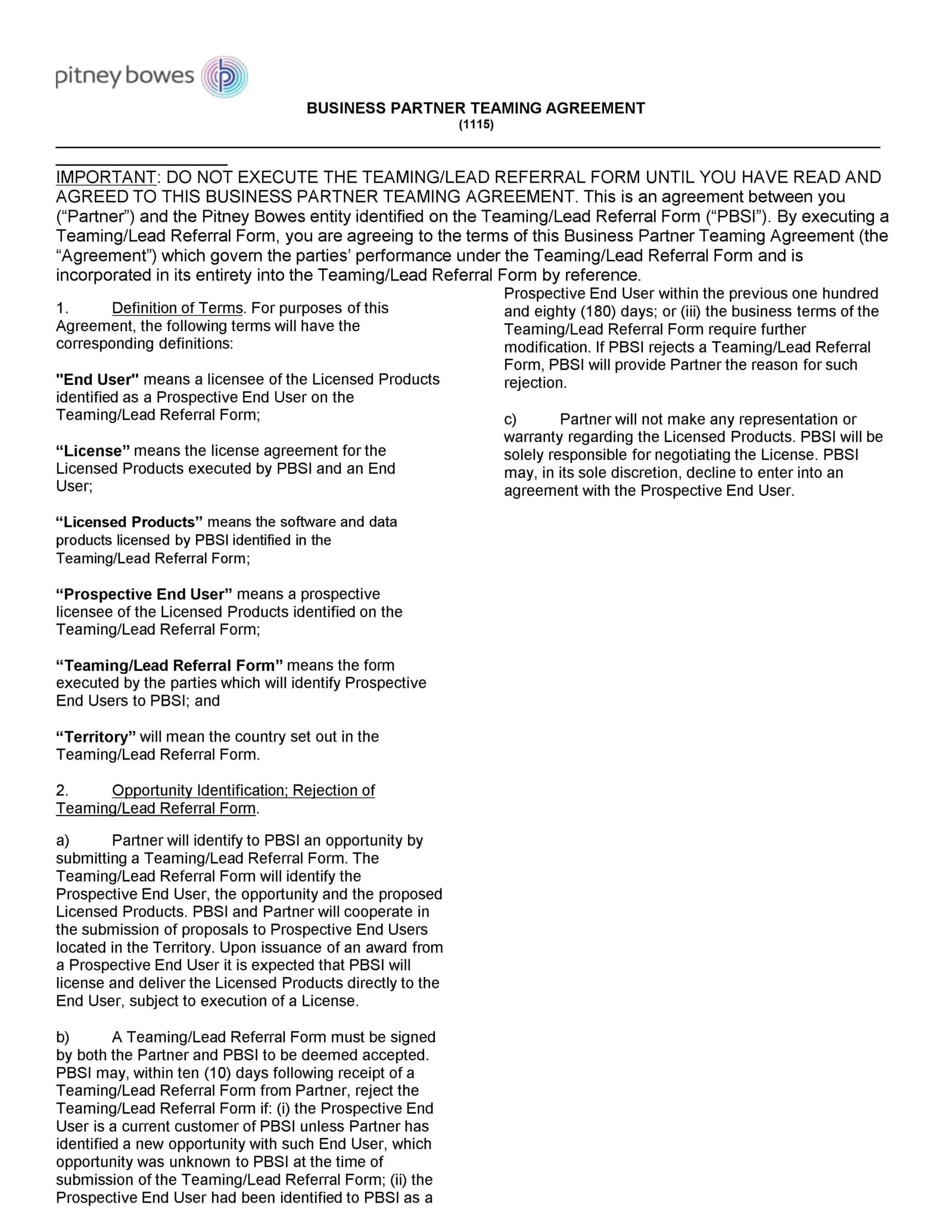
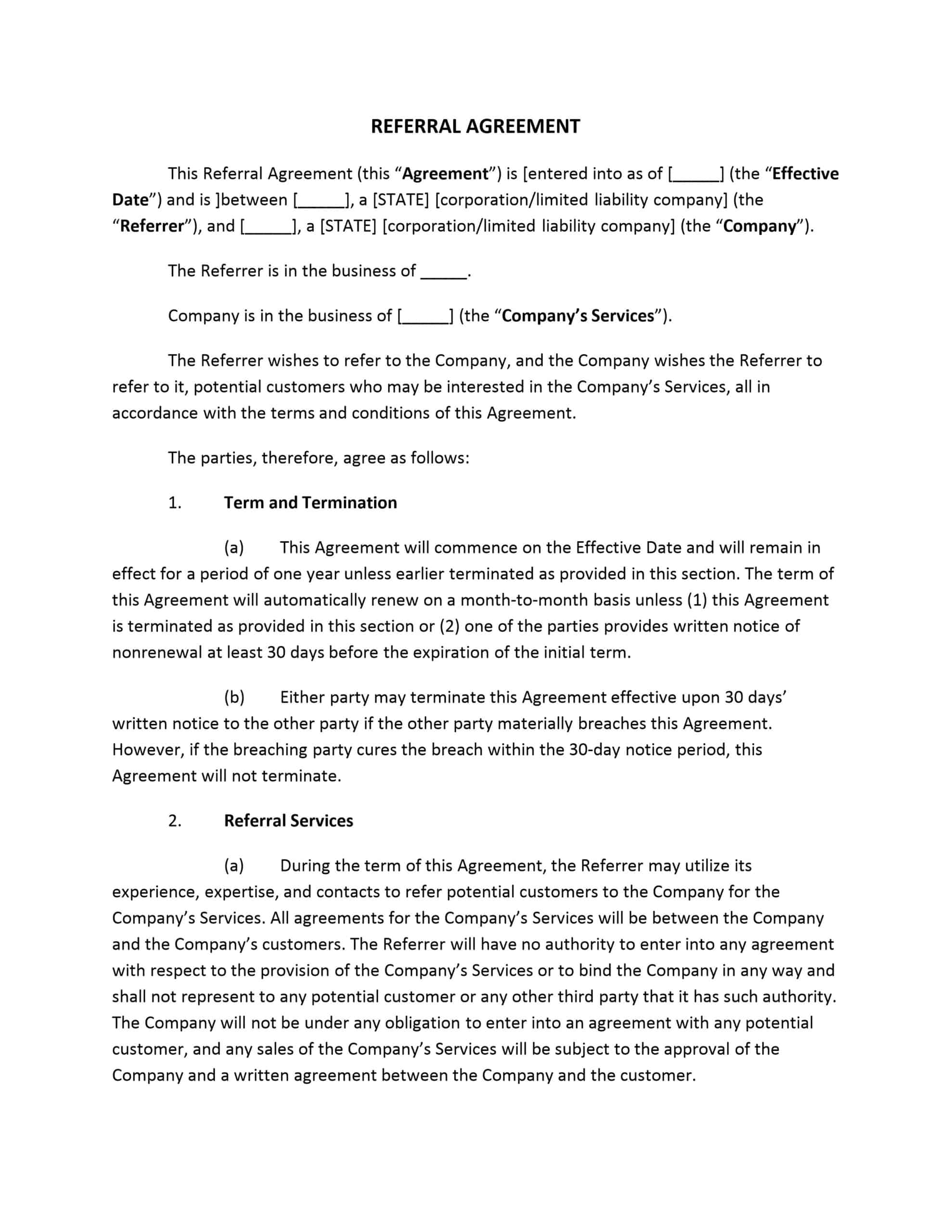
![Free Printable Roommate Agreement Templates [Word, PDF] 1 Roommate Agreement](https://www.typecalendar.com/wp-content/uploads/2023/06/Roommate-Agreement-150x150.jpg)
![Free Printable Credit Card Authorization Form Templates [PDF, Word, Excel] 2 Credit Card Authorization Form](https://www.typecalendar.com/wp-content/uploads/2023/06/Credit-Card-Authorization-Form-150x150.jpg)
![Free Printable Stock Ledger Templates [Excel,PDF, Word] 3 Stock Ledger](https://www.typecalendar.com/wp-content/uploads/2023/08/Stock-Ledger-150x150.jpg)
